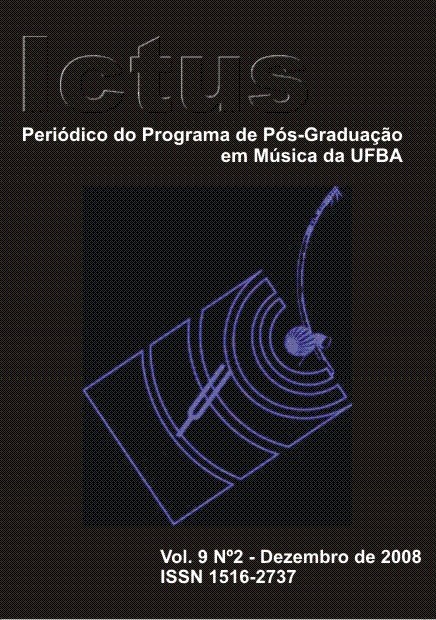Practicing perfection: How concert soloists prepare for performance
DOI:
https://doi.org/10.9771/ictus.v9i2.34335Palavras-chave:
psicology in music, memory, performance practiceResumo
Musical performances by concert soloists in the Western classical tradition are normally memorized but there is little agreement between musicians about how this is done. To find out, we have studied concert soloists preparing new works for public performance. The musicians’ reports about their musical decisions provide the key to understanding what they are doing in practice. Practice, in turn, provides a window into what the musicians are thinking about as they perform. Combining musicians’ subjective reports with the objective record of what they do in practice and performance provides insight into how musicians memorize. Performers have a mental map of the piece in mind as they perform that tells them where they are and what comes next — a series of landmarks, hierarchically organized by the sections and subsections of the music. The musician attends to these performance cues in order to ensure that the performance unfolds as planned. Performance cues are established by thinking about a particular feature of the music during practice so that it later comes to mind automatically. Performance cues help the soloist consciously monitor and control the rapid, automatic actions of playing, while adjusting to the needs of the moment.Downloads
Não há dados estatísticos.
Downloads
Publicado
2009-02-07
Edição
Seção
Convidados

